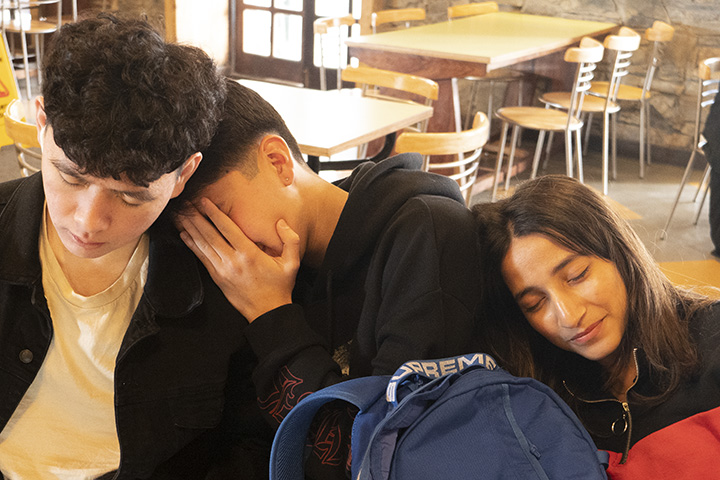
03 Mar Sleep your way to better grades?
Of all the ways you can help your child to increase their GPA, this has got to be one of the easiest – encouraging them to get more sleep. Research out of MIT suggests that better sleep habits lead to better grades. In itself, this isn’t exactly a revelation, but what is surprising is the extent of its impact.
The study by MIT postdoc Kana Okano and professors Jeffrey Grossman and John Gabrieli monitored 100 MIT students’ sleep patterns over a semester alongside their academic performance in Grossman’s chemistry course.
It showed a clear correlation between the amount students slept and their grades. And a relatively small difference in time spent sleeping appears to have had a far more significant effect on grades than expected. Overall course grades for students who slept on average six and a half hours a night were down by 50 percent compared to students sleeping on average just one hour more each night.
"One key finding was that getting a good night’s sleep the night before and exam wasn’t enough."
“The results of this study are very gratifying to me as a sleep researcher, but are terrifying to me as a parent,” says Robert Stickgold, a professor of psychiatry and director of the Center for Sleep and Cognition at Harvard Medical School, who was not connected with the study. He adds, “Similarly, those who had just a half-hour more night-to-night variation in their total sleep time had grades that dropped 45 percent below others with less variation. This is huge!”
One key finding was that getting a good night’s sleep the night before and exam wasn’t enough. It turns out that this didn’t correlate with test performance at all. What was important was the amount and quality of sleep during the days when learning is happening. There may, of course, be other factors which influenced the grades, but the study gives a strong indication that, as Grossman says, sleep “really, really matters.”
"The foundations of good sleep habits start way before bedtime."
Knowing that your child can benefit from good sleeping habits and getting them to adopt them are two different things of course. The US National Sleep Foundation recommends 8-10 hours’ sleep a night for teenagers, and 9-11 hours for 6-13 year-olds. With everything else going on in their busy lives, getting a good night’s sleep isn’t always their top priority. But the foundations of good sleep habits start way before bedtime – exposure to sunlight during the day, avoiding blue light from screens for a couple of hours before bed, getting sufficient exercise and avoiding the jet-lag effect of long lie-ins at the weekend. The Foundation has some useful tools and tips for teenagers, including a sleep diary where they can track their sleep habits.
“If parents and teens know what good sleep entails and the benefits of making and sticking to a plan that supports good sleep, then they might re-examine their choices about what truly are their ‘essential’ activities,” says Mary Carskadon, Ph.D., Professor of Psychiatry and Human Behavior at Brown Medical School in Providence, R.I. “The earlier parents can start helping their children with good sleep habits, the easier it will be to sustain them through the teen years.”
Dr Craig Cook, Principal






Guru Rao
Posted at 16:41h, 12 MarchThis is the amazing post which I liked the most, Thanks for creating such good content!